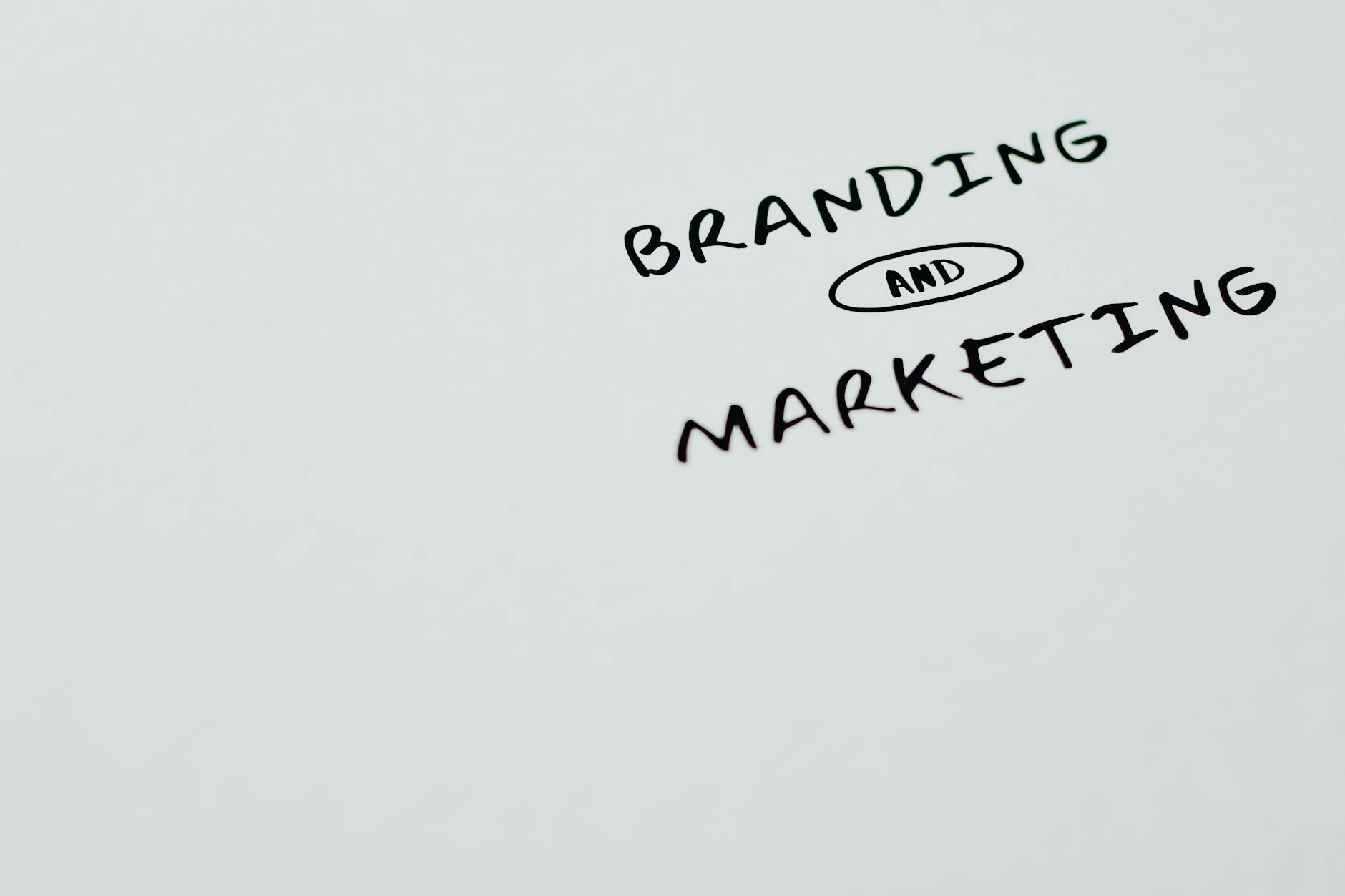Key Factors to Consider When Choosing a Digital Marketing Agency
Key Factors to Consider When Choosing a Digital Marketing Agency
Key Factors to Consider When Choosing a Digital Marketing Agency
Finding the right digital marketing agency is key to boosting your business's online presence. With so many options out there, it can feel overwhelming. This post will help you make sense of what matters most: solid experience, clear communication, and proven results.
It’s not just about picking an agency; it’s about choosing a partner that understands your specific needs. Whether you’re looking to enhance your brand awareness or get more leads, the right agency can make all the difference.
We'll cover essential factors to consider: from reviewing their past work to understanding their strategies. A thoughtful approach will steer you toward an agency that aligns with your goals, helping you create a successful online strategy.
Ready to make your selection? Let’s dive in!
For some additional insights, check out this useful video on choosing the right digital marketing agency.
Understanding Your Needs
Before you start reaching out to digital marketing agencies, take the time to articulate your specific needs. Understanding your business objectives and the budget you have will play a significant role in the selection process.
Identifying Business Goals
Setting measurable objectives is essential for effectively guiding your marketing efforts. Think of your goals not just as abstract ideas but as clear targets that you want to achieve. Consider using the SMART framework—Specific, Measurable, Achievable, Relevant, and Time-bound—as a guide. For example, rather than saying, "I want to increase website traffic," specify "I want to increase website traffic by 30% in the next six months." This clarity will provide a direction for both you and the agency.
Here are some examples of measurable marketing goals:
- Increase brand awareness: Aim for specific metrics like social media followers or website visits.
- Drive leads: Set goals on the number of leads captured through forms or subscriptions.
- Enhance customer engagement: Target metrics such as email open rates or social media interactions.
When crafting your objectives, be sure to tie them back to what matters most for your business success. If you’re unsure where to start, consider exploring resources on setting SMART goals for marketing.
Budget Considerations
Your marketing budget significantly influences the agency you can afford and the services they offer. Knowing your budget limits helps eliminate potential agencies that may not align with your financial expectations.
Consider these aspects when discussing your budget with agencies:
- Project Scope: Determine what services you'll need, whether it's SEO, social media management, or content creation. This will help you allocate the correct amount of funding.
- Agency Size: Larger agencies may charge more, but they often bring additional resources and experience. In contrast, smaller agencies might provide personalized attention at a cost-effective rate.
- Monthly Retainers vs. Project Fees: Some agencies work on a monthly retainer basis, offering ongoing support, while others might provide fixed project fees. Choose based on your business needs.
To gain insight into digital marketing budgeting, check out this article about understanding digital marketing agency costs.
Understanding your specific needs, including measurable goals and budget constraints, is vital before embarking on your search for the right agency. By doing so, you can ensure a more fruitful partnership that aligns with your marketing aspirations.
Evaluating Agency Expertise
When selecting a digital marketing agency, understanding their expertise is crucial. An agency's range of knowledge and skills can significantly enhance your marketing efforts. Here are two key aspects to focus on when evaluating their capabilities: specialization and track record.
Specialization
Every agency has its strengths. Seeking out agencies that specialize in certain areas of digital marketing can be valuable. Specialization allows an agency to dive deep into specific services, ensuring they stay updated on trends and best practices.
Consider these reasons why specialization matters:
-
Industry Insight: Specialized agencies understand the unique challenges of specific industries. They know the right strategies to engage your target customers effectively. Learn more about the importance of specialization in digital marketing.
-
Quality Over Quantity: A specialized agency often excels in fewer services but does them exceptionally well. Clients can benefit from tailored strategies rather than generic solutions.
-
Reputation Building: Agencies known for their specialization often build stronger reputations in their field. As they gain more experience, they create effective case studies that showcase their success.
Choosing an agency with a focus that aligns with your needs can lead to more fruitful outcomes.
Case Studies and Success Stories
Past performance is a significant indicator of a digital marketing agency's reliability. Reviewing case studies and success stories sheds light on how an agency has helped clients achieve their goals.
Consider the following steps to assess their track record:
-
Analyze Metrics: Look for specific metrics in case studies: Did they increase website traffic? Boost user engagement? Successful agencies usually provide clear data showing their impact.
-
Diverse Experience: Examine a variety of case studies. An agency with experience in different sectors likely possesses a rich toolkit of strategies that they can apply to various challenges. Discover engaging case studies in digital marketing to guide your decision.
-
Client Testimonials: Apart from case studies, explore testimonials from previous clients. Positive feedback about working with the agency signals a trustworthy partnership.
Using these insights, you can make a more informed decision about selecting an agency that not only fits your needs but also brings proven success.

Photo by Canva Studio
Assessing Agency Reputation
Assessing the reputation of a digital marketing agency is a crucial step in your decision-making process. The insights gathered from client reviews and industry recognition can help gauge the agency's effectiveness and credibility in delivering results. Ultimately, a strong reputation signifies reliability, which is key when entrusting someone with your marketing efforts.
Client Reviews and Testimonials
One of the most straightforward ways to evaluate an agency's reputation is by examining client reviews and testimonials. These can provide real-world insights into the agency's performance and customer satisfaction. Checking reviews on platforms like Google and social media helps you gather diverse perspectives.
Consider the benefits of exploring client feedback:
- Transparency: Honest reviews reflect how agencies operate daily. They can reveal strengths, weaknesses, and overall work ethic.
- Contextual Experience: Different clients might have varying expectations. Reviews can highlight how the agency tailors their approach to fit different client needs.
Here are some resources where you can find insightful reviews and testimonials:
- Digital Marketing Agency Testimonials & Reviews | HOD
- Client Testimonials | Digital Marketing Reviews
- Testimonials - Digital Marketing Agency
- Digital Marketing Testimonials | WSI
- Client Testimonials | Digital Marketing Solutions
Taking a closer look at authentic feedback can paint a clearer picture of what to expect from the agency.
Industry Recognition and Awards
Industry recognition and awards can be strong indicators of an agency’s quality of work. Awards serve as an external validation of success. They highlight agencies that not only excel in service but also genuinely contribute to the field. When you see an agency celebrated for its achievements, it often points to their commitment to high standards and innovation.
Here are key reasons why awards matter:
- Credibility: Awards lend legitimacy to an agency's claims, reinforcing their expertise and reliability.
- Consistency: Recognition often indicates that an agency consistently delivers compelling results over time.
Look for agencies that have received awards in relevant categories. Here are some links that highlight award-winning digital marketing agencies:
- US Agency Awards | Celebrating & Rewarding Outstanding
- Our Awards & Recognition | Digital Marketing
- Best Digital Marketing Awards To Get On Your Radar
- Digital Agency Awards & Recognition
- Awards & Recognition - Web Design and SEO from Thrive
An agency’s accolades can significantly support your evaluation. Look for those recognized for creativity, effectiveness, and growth alongside client-centric approaches.

Photo by Eva Bronzini
Communication and Collaboration
A solid partnership with a digital marketing agency hinges on effective communication and collaboration. The way you interact with the agency can influence the overall success of the marketing efforts. Here’s what you need to know about the communication strategies you should expect throughout the process.
Initial Consultation
During your first meetings, you should expect a thorough discussion about your business goals, target audience, and expectations. This is a critical step because it lays the foundation for the partnership. Here’s what usually happens:
- Mutual Understanding: Initially, the agency should ask detailed questions to understand your business inside out. Their strategy will rely heavily on the insights you provide.
- Service Overview: You’ll learn about the services the agency offers, including SEO, PPC, and content marketing. They should clarify how these fit into your overall strategy.
- Questions and Answers: This is your opportunity to ask anything you need. A good agency will welcome your questions and provide clear, straightforward answers.
This initial conversation sets the tone for your relationship. Agencies that prioritize understanding your unique needs can tailor their strategies for better results. To further explore the importance of these discussions, check out insights on The Importance of Communication in Digital Marketing.
Ongoing Communication
Regular and transparent communication should be a way of life once you've engaged with an agency. It's essential for keeping your marketing efforts aligned and productive. Effective communication typically includes:
- Weekly Check-Ins: Agreed-upon meetings (virtual or in-person) can be a part of ensuring everyone is on the same page. These aren’t just for updates; they allow for real-time feedback and adjustments.
- Progress Reports: Expect comprehensive updates detailing what has been done, what’s next, and any challenges encountered. Transparency builds trust, which is vital.
- Collaboration Tools: Agencies often use project management tools to track objectives. Familiarize yourself with platforms like Trello or Asana for efficient interactions.
Ongoing communication is key in facilitating robust collaboration. When agencies are proactive in keeping lines of communication open, you can work together more effectively. Dive into more about improving communication in teams by visiting this link on How to Collaborate Effectively in Digital Marketing.

Photo by Werner Pfennig
Understanding Pricing Models
When evaluating a digital marketing agency, understanding their pricing models is essential. Agencies often have different pricing structures that can affect your budget and the value you receive. Let's break down two main areas: the types of pricing models you might encounter and how to assess the value for your money.
Hourly Rate vs. Project-Based Fees
Two of the most common pricing models are hourly rates and project-based fees. Each has its advantages and disadvantages that may influence your decisions when partnering with an agency.
-
Hourly Rate:
- Pros:
- Flexibility: You can engage the agency on an as-needed basis.
- More control over the spending: You pay only for the actual hours worked.
- Cons:
- Uncertainty: Costs can escalate unexpectedly if the project takes longer than planned.
- Less incentive for efficiency: Agencies might stretch hours to increase costs.
- Pros:
-
Project-Based Fees:
- Pros:
- Fixed costs: You know the total upfront, allowing for better budget management.
- Encourages efficiency: Agencies often strive to complete projects in less time to maximize their profit.
- Cons:
- Rigid: Changes in scope can lead to additional costs or disputes.
- Quality Variance: If the price is the primary concern, quality may suffer.
- Pros:
Evaluating these models helps you determine which aligns best with your project needs. For a deeper understanding of various pricing models, check this guide on marketing agency pricing.

Photo by Kindel Media
Value for Money
Assessing whether the services offered justify the pricing is crucial for ensuring you're making a sound investment. When looking to determine value for money, consider these steps:
-
Review Deliverables:
- Ensure that the services provided align with what was promised in the proposal. For example, if they committed to increasing traffic by a specific percentage, check metrics to verify this achievement.
-
Client Testimonials:
- Explore past clients’ feedback. Positive testimonials can indicate the agency's effectiveness and satisfaction level.
-
Compare Other Agencies:
- Look at competitors offering similar services to see if their prices align. Don't just focus on cost; consider the quality and results promised.
-
Long-Term Strategy:
- Understand the agency's approach. Is it sustainable for your business? A higher upfront cost may track with long-term gains.
-
Transparency and Communication:
- Agencies that maintain open communication about cost and metrics foster trust. A clear, consistent dialogue ensures you stay informed about project developments and ongoing value.
To dive deeper into how to evaluate the value offered by an agency, refer to this article on valuing a digital marketing agency. This will help you get a grasp of financial performance and client satisfaction indicators.
When you gain insights into different pricing models and how to evaluate their value, you’re better positioned to choose the right digital marketing agency for your needs.
Cultural Fit and Values
Selecting the right digital marketing agency extends beyond skill sets and pricing. It's also about finding a partner whose culture aligns with yours and shares similar values. This alignment fosters a productive partnership, enhancing cohesion and speaker efficiency.
Assessing Cultural Compatibility
Evaluating an agency's culture should be part of your selection process. Here are effective strategies:
- Conduct Interviews: Ask potential partners key questions to gauge their culture. Open discussions reveal if their working style aligns with your requirements.
- Consider Team Dynamics: Observe how agency staff interacts. A collaborative atmosphere suggests they value teamwork, a quality that benefits client partnerships.
- Review Company Values: Examine the agency's mission statement and values. If they emphasize innovative thinking and creativity, they might resonate with companies looking for fresh, bold strategies.
- Cultural Fit Questions: Integrate specific questions when communicating with agencies. Questions like “How do you handle conflicts within your team?” can provide insight into their workplace environment. For more on what to ask, check out 5 Cultural Fit Questions to ask Potential Partners.
An agency's culture can substantially impact your partnership's success and should never be overlooked.
Value Alignment
Shared values form the foundation for strong partnerships. Here's why they matter:
- Trust and Transparency: When both parties operate under similar guiding principles, it promotes open communication and relationship-building. Trust leads to effective collaboration.
- Goal Harmony: Agencies that share your core values will typically align their strategies with your business goals. They’ll be more invested in your success and will go the extra mile to deliver exceptional results.
- Improved Resilience: In times of disagreement or challenges, shared values keep the focus on the larger goal. It makes navigating tough situations easier.
- Long-term Relationships: Values-based partnerships tend to flourish. They lead to committed, engaged collaborations that can last years, thus reducing the need for frequent partner changes.
For a deep dive into the significance of aligned values in business partnerships, visit The importance of shared values in business partnerships. Partners with a foundation of common beliefs can unlock new opportunities for growth and innovation.

Photo by RDNE Stock project
Long-Term Partnership Potential
Building a long-term relationship with a digital marketing agency opens doors to consistency, trust, and enhanced collaboration. As both sides grow, a shared history develops. This background can significantly impact your marketing strategy's effectiveness and sustainability over time.
Growth and Scalability: Consider the agency's ability to grow with your business.
When choosing a digital marketing agency, think about their capacity to scale as your business evolves. Long-term partnerships often thrive on mutual growth. Here are key factors to consider:
- Shared Vision: An agency should understand your goals, enabling them to align their strategies with your evolving needs. This foresight helps both parties stay on the same path.
- Proven Track Record: Look for agencies with a history of supporting clients as they expand. Their experience with different stages of growth can provide better insights on adjusting strategies as your business changes.
- Tailored Solutions: Your needs may vary over time. A flexible agency can quickly adapt its services, from local SEO to international campaigns, accommodating your business trajectory.
Agencies that prioritize scalability foster a partnership that sets the stage for long-term success. Understanding their approach, like how they manage transitions or new project scopes, can help gauge alignment. For additional guidance on creating strong partnerships, consider reading about building long-term partnerships in digital marketing.
Flexibility in Services: Discuss the importance of an agency that can adapt to changing needs.
The digital marketing landscape is anything but static. An agency that can flexibly respond to emerging trends and your changing business requirements is invaluable. Why is this adaptability necessary?
- Market Changes: Consumer behavior and market conditions frequently shift. An adaptable agency can pivot campaigns, ensuring your marketing message is always relevant.
- Ongoing Communication: Regular check-ins help address any changes on either side. This keeps the partnership dynamic and responsive to new challenges or opportunities that arise.
- Diverse Expertise: Agencies that offer various services — from social media management to SEO — can adjust strategies as your objectives change, all under one roof.
A flexible agency is not just a service provider but a true partner. They’re invested in your long-term success by continuously fine-tuning your strategy. To explore the need for flexibility in today’s marketing approaches more widely, check out why flexibility is critical in marketing.

Photo by Alena Darmel
Conclusion
Choosing the right digital marketing agency is a significant step for your business. Focus on their expertise, reputation, and the value they bring.
Match your objectives with their approach for harmony in the partnership. Always prioritize communication and assess their flexibility in adapting to your changing needs.
Now that you’re informed, take action. Explore potential agencies, ask the right questions, and trust your instincts. Your business’s success is just a partnership away.
What features do you think are most crucial for your next digital marketing partner?
Comments
Post a Comment